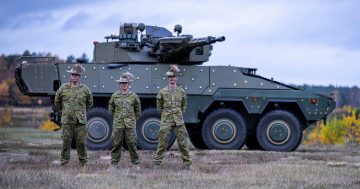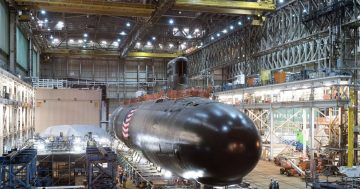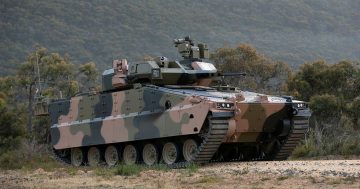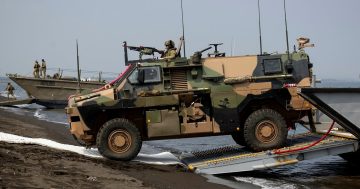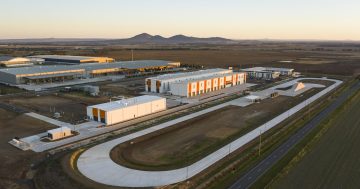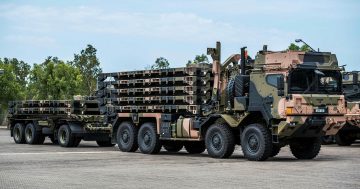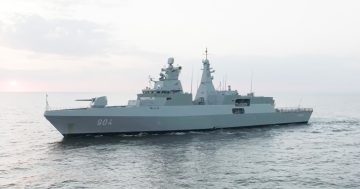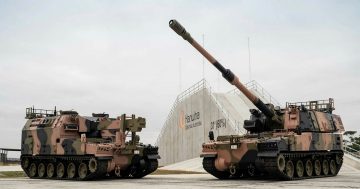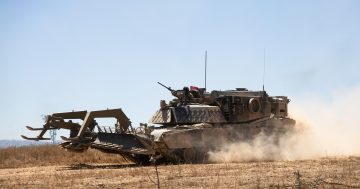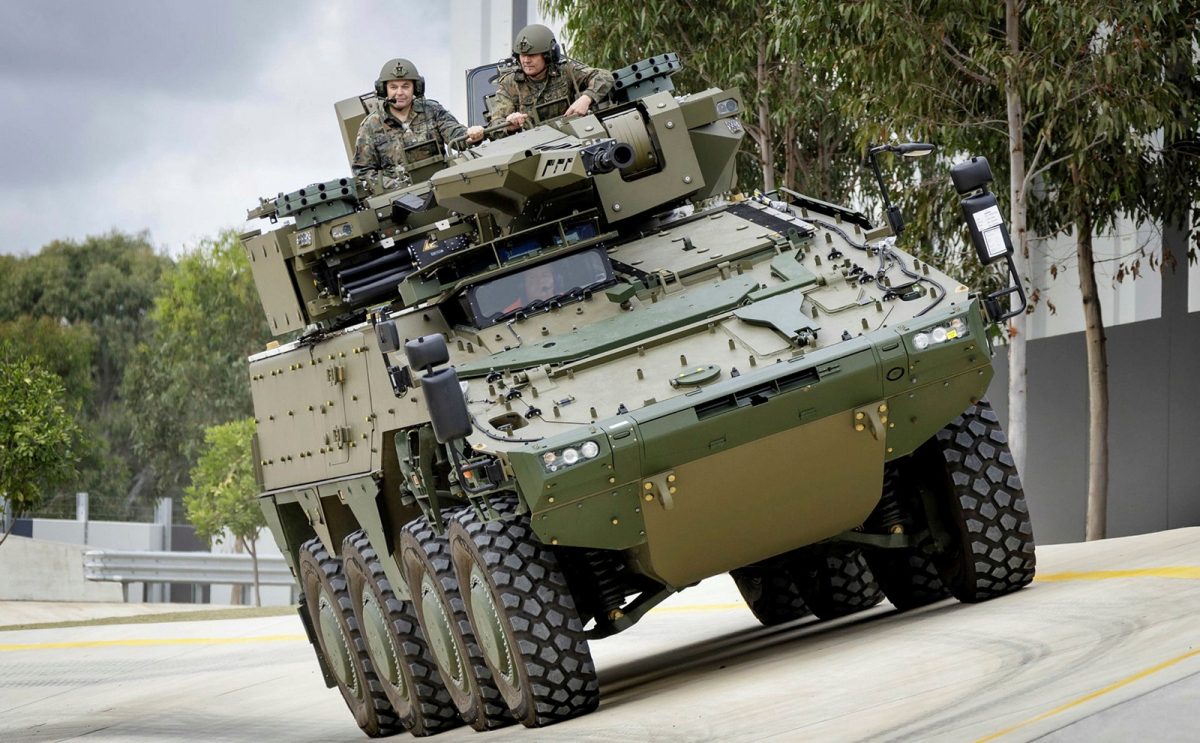
Chief of the German Army Lieutenant General Alfons Mais (left) and Head of Equipment Department Ministry of Defence Vice Admiral Carsten Stawitzki (right) in a Boxer Combat Reconnaissance Vehicle at Rheinmetall’s MILVECHOE in March 2023. Photo: ADF.
The German Parliament has ratified an agreement for Australia to build 100 Rheinmetall Boxer 8×8 armoured vehicles for the German Army.
The deal has been some 12 months in the making, after Germany substantially increased defence spending in the wake of Russia’s 2022 invasion of Ukraine.
Like many European nations, Germany has been ramping up its military capabilities, but is lacking production capacity and sufficient skilled manufacturing workers at many of its own facilities.
Rheinmetall Australia is currently building 186 of the 211 Boxers on order for the Australian Army under Project LAND 400 Phase 2 at its Military Vehicle Centre of Excellence (MILVEHCOE) at Ipswich in Queensland.
The German deal would see components from Germany integrated with hulls made from Australian steel at MILVECHOE, and re-exported to Germany as the Boxer Heavy Weapon Carrier.
The Boxer’s hull and armour are made from steel supplied by Port Kembla-based Bisalloy which has been certified for incorporation into Rheinmetall’s and other companies’ global supply chains for use on armoured vehicle programs in Europe.
Production of the German vehicles is expected to commence in time for first delivery in 2026, and be completed by 2030.
The deal was first announced last March when Germany’s Parliamentary State Secretary to the Federal Minister of Defence Thomas Hitschler visited MILVECHOE and the Australian Army’s 2nd/14th Light Horse Regiment, which operates the Boxer at Gallipoli Barracks in Brisbane. He later signed a letter of cooperation on Boxer production with Minister for Defence Industry Pat Conroy in Canberra.
Prime Minister Anthony Albanese subsequently announced during a visit to Germany in July that the deal would go ahead.
After the AS21 Redback built by Korean industrial giant Hanwha was announced as the winner of the Australian Army’s follow-on Project LAND 400 Phase 3 Infantry Fighting Vehicle requirement against the Lynx KF41 offering from Rheinmetall last September, it was reported that Rheinmetall might withdraw its offer to build the German Boxers in Australia.
But at that time Deputy Prime Minister and Defence Minister Richard Marles described the report as speculation, and said the government would continue to work with Germany on the deal.
Yesterday (21 March), the Prime Minister described the deal as a significant announcement worth more than $1 billion to the Australian economy.
“The agreement will boost Australia’s sovereign defence industry, secure local jobs and contribute to Australia’s economic growth,” he said.
“This deal secures well-paid jobs in Queensland and across the country.”
Mr Marles said he was pleased to be signing what he described as the biggest defence export agreement in Australia’s history.
“The build and export of Boxer Heavy Weapon Carrier vehicles to the German Army highlights a strengthening of the relationship between our two countries,” he said.
“The Albanese Government is not only committed to bolstering our nation’s growing defence industry, technology and talent, but also supporting ongoing economic prosperity in the region.”
Minister Conroy said the announcement underscored the support and immense effort on the part of the government in ensuring Australia had a robust defence industry.
“A strong defence industry is crucial to protecting Australians and their interests,” he said. “This announcement is also a testament to the hardworking Australians employed in this critical industry.
“Today’s announcement means more than 600 Australians will secure stable employment at Rheinmetall’s Military Vehicle Centre of Excellence in Queensland, along with many more throughout our defence industry across the nation.”


